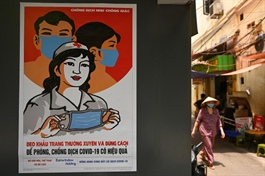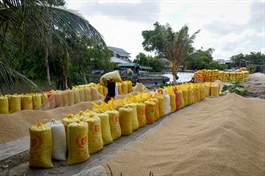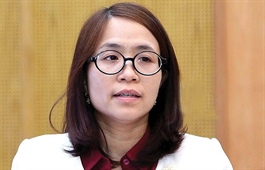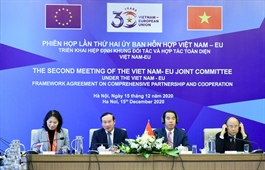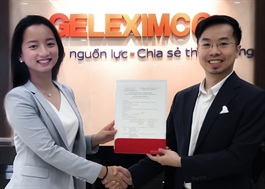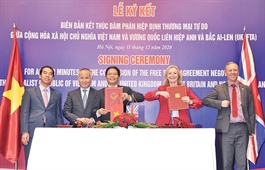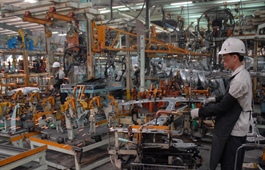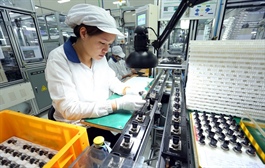EVFTA helps ensure sustainable trade relations between Vietnam, EU
EVFTA helps ensure sustainable trade relations between Vietnam, EU
The EVFTA does not limit to a removal of import tariffs, but also open up opportunities for Vietnam to continue its institutional reform for a more transparent, predictable and fair business environment.
Four months since the EU – Vietnam Free Trade Agreement (EVFTA) officially kicked off, positive impacts from the deals are strong evidence that both sides are on the right track towards a sustainable trade relation.
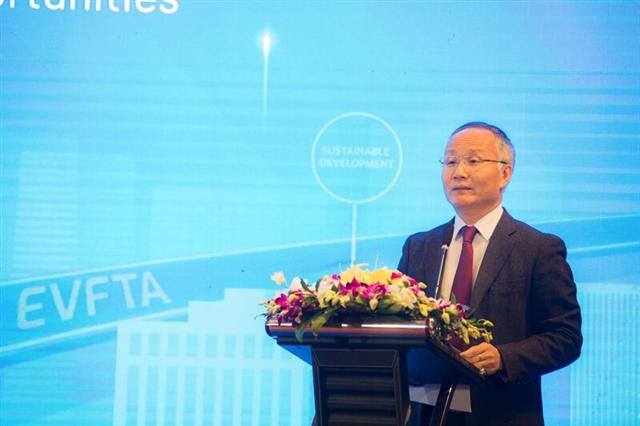
Deputy Minister of Industry and Trade Tran Quoc Khanh. Photo: EU in Vietnam.
|
Deputy Minister of Industry and Trade Tran Quoc Khanh made the statement at a round-table themed “EU-Vietnam FTA: First Success and Future Opportunities” held on December 16 in Hanoi.
“EVFTA is a highlight in the Vietnam – EU relations,” stated Mr Khanh.
One month after the EVFTA took effect, Vietnam’s exports to the EU expanded at a modest rate of 7%, however, the figure has steadily risen to 9% in the second month and then 15% in the third one.
“Export growth averaged 10 – 11% after three months in implementing the EVFTA,” he said, adding Vietnam’s utilization rate of preferential treatments in other free trade agreements is often at a low rate, around 2–3%, or 8-9% at the highest.
On the contrary, Vietnam’s imports goods worth US$13.2 billion from the EU in the first 11 months of the year, up 4.3% year-on-year, with import growth three months after the EVFTA reaching 11.5%.
The EVFTA also exerts its impact on the investment capital from EU to Vietnam. Statistics from the Foreign Investment Agency under the Ministry of Planning and Investment revealed EU’s registered capital to Vietnam in the nine-month period increased by US$100 million and 180 projects year-on-year to US$752 million.
“This showed European investors are taking advantages of the deal to look for business opportunities in Vietnam,” Mr. Khanh added.
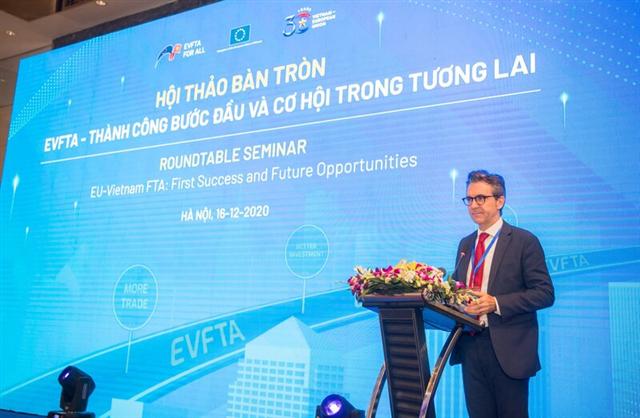
Ambassador of the European Union Delegation to Vietnam Giorgio Aliberti. Photo: EU in Vietnam.
|
While there have been early positive results, Ambassador of the European Union Delegation to Vietnam Giorgio Aliberti noted the EVFTA is a next-generation trade deal that covers various aspects and fields.
Mr. Aliberti said this poses challenges for enterprises to understand all requirements and criteria stipulated in the EVFTA, adding this is the only way for them to take full advantage of the deal.
On this issue, Director of the WTO Center and Economic Integration under the Vietnam Chamber of Commerce and Industry (VCCI) Nguyen Thi Thu Trang referred to a recent study conducted by the VCCI that the number of enterprises showing understanding to Vietnam’s commitments in the EVFTA is the highest among FTAs that Vietnam has signed.
“Local firms also hold high expectation for this trade deal compared to others, which shows the strong efforts from government agencies in promoting the EVFTA to the business community,” Mrs. Trang added.
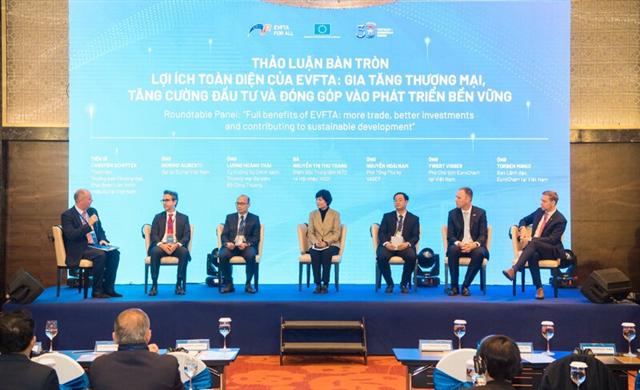
Overview of the discussion. Photo: EU in Vietnam.
|
Stay ready in terms of legal capabilities
The EVFTA, nevertheless, does not limit to a removal of import tariffs, but also open up opportunities for Vietnam to continue its institutional reform for a more transparent, predictable and fair business environment.
Torben Minko, Chairman of the European Chamber of Commerce (EuroCham) Committee, said the EVFTA would lay a strong foundation for enterprises to be among its main beneficiaries.
Mr. Minko expected greater harmonization of regulations and standards would help create convenience for European investors to commit to long-term business in Vietnam.
In fact, after the EVFTA took effect in August, Vietnamese government agencies have issued six legal documents to transpose Vietnam’s commitments in the deal to national regulations.
Director of the Multilateral Trade Policy Department under the Ministry of Industry & Trade Luong Hoang Thai expected more administrative reform to build trust for not only partners from EU but also from other countries.
“In a rapidly changing world, not only enterprises but also government agencies have to constantly improve their efficiency in operation. So that we can quickly address issues that the business community are concerned,” Mr. Thai said.









